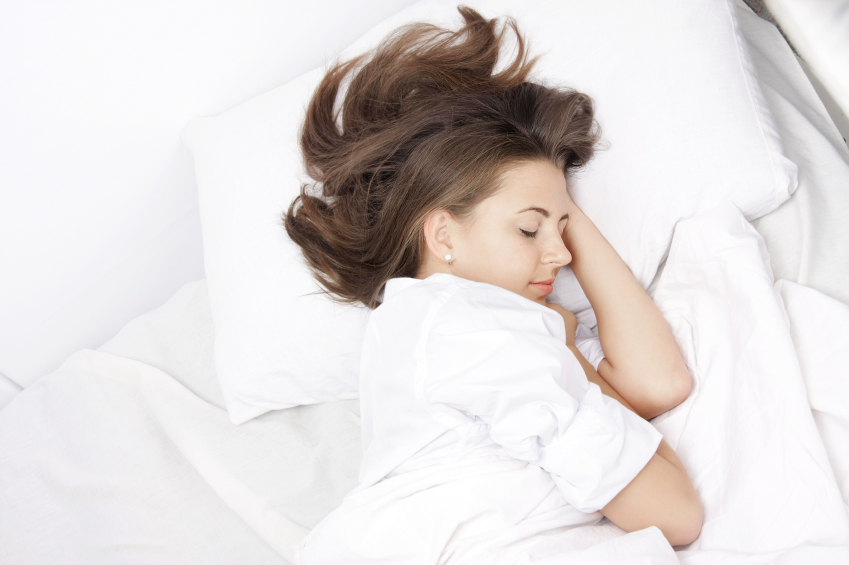Fatigue on the job is a known risk factor for causing lost productivity and accidents. In today’s Advisor, we’ll provide training information to help your workers get a good night’s sleep—even if their work shift requires sleeping during the day!
 |
Background
While most people sleep 7 to 8 hours a night, the amount of sleep each individual needs varies. Most of us need more sleep when we’re sick and when we’re under stress.
Furthermore, everyone’s natural biological rhythms are geared to sleeping at night, when it’s dark and being active during daylight hours. When you have to work at night, or if you work rotating shifts, you can fall victim to fatigue and illness.
Finally, feeling rested is more than how long you sleep; it’s also a matter of how you sleep. Sound sleep is a sign of health, but many people find it hard to come by. They suffer from insomnia. Insomnia comes in many forms:
- It may take you a half hour or more to fall asleep.
- You may wake frequently during the night.
- You may wake early and not be able to get back to sleep. The result is that you wake up tired and irritable.
Insomnia is usually a symptom of another problem—either physical, mental, or emotional. You may have insomnia for a night or two when you have a cold or backache, or when you’re worried about an upcoming event.
Long-lasting insomnia has several possible causes. These include:
- Stress or worry
- Too much noise at the wrong time
- Medical condition such as arthritis, ulcers, asthma, or heart disease
- Abuse of drugs (including sleeping pills), alcohol, or from drinking too much caffeine
- Depression or phobias, where fears or nightmares wake you
Whatever the cause, and however long it lasts, insomnia can be dangerous to your health and safety. If you’re not “working on all cylinders,” your work suffers, and you become a hazard to yourself and others.
62 million Americans experience a mental health issue every year… are your HR functions compliant with laws protecting them? Learn More
The Priority of Sleep
Everyone wants to get enough sleep, but sometimes it seems that you have to cut back on sleep in order to fit everything else into a 24-hour day. Reasons you may be tempted to cut short your sleep time include:
- Working more than one job
- Working a lot of overtime
- Working at times when your family is asleep
- Doing projects around the house or yard
- Spending time with the family
- Doing volunteer activities
- Enjoying favorite activities or TV shows
Admittedly, many of these reasons may be valid and valuable. But losing sleep on a regular basis can lead to health problems, which can ultimately impede all of these activities.
Expert Tips
It’s up to you to decide what to cut out of your life so that you can get enough sleep. Once you’ve made sleep a priority, use these expert tips to help ensure that you get the most from the hours you spend with your head on the pillow.
1. Go to sleep when you’re tired. Don’t prop your eyes open for your favorite late night comic or go to bed extra early to make up for lost sleep.
2. Go to bed at the same time every night and get up at the same time every morning, including weekends. This helps your body get into a rhythm that tells it when to sleep—and when to be at peak alertness. Don’t try to make up for a bad night’s sleep by staying in bed longer in the morning or taking a nap later. It won’t help, and it will hurt your attempts to establish a sleep rhythm.
3. If you have to sleep during the day, keep your bedroom dark, cool, and quiet. Use a lightproof window shade or heavy drapes. If other family members are on different schedules or your neighborhood is noisy, use a fan to cover or mask noises. Thick carpets will help, too. You can also use earplugs.
Depression … anxiety … bipolar disorder …. Real employee conditions that call for a careful HR response. Are you prepared? Click Here
21st-Century Sleep Tips
Some researchers claim that mobile devices may be disrupting sleep patterns, and in some cases contributing to insomnia, by fooling the user’s brain into believing it’s daytime. The deception occurs when the bright, blue light from the screen hits a user’s eyes and tells the brain that it’s daytime. The brain then stops producing melatonin, the hormone that helps regulate sleep cycles by inducing sleepiness.
If you have been using a laptop, iPad®, or similar device at night and are having trouble sleeping, here are a few suggestions:
- Dim your screen or decrease blue hues.
- Switch to a device that doesn’t emit light, like the Kindle, or a good-old-fashioned book or paper report.
- Stop using light-emitting devices 1 or 2 hours before bedtime.
In tomorrow’s Advisor, we’ll get more training information on how to sleep well, how to combat drowsiness on the job, what to do if you’re tired enough to be a hazard, and what to do if sleep problems persist.

You don’t mention Apnea at all, which is probably the biggest contributor to poor sleeping habits, and is known to lead to very serious complications, including death.
Thanks for commenting, Sally. We’ll talk about sleep apnea in tomorrow’s article.